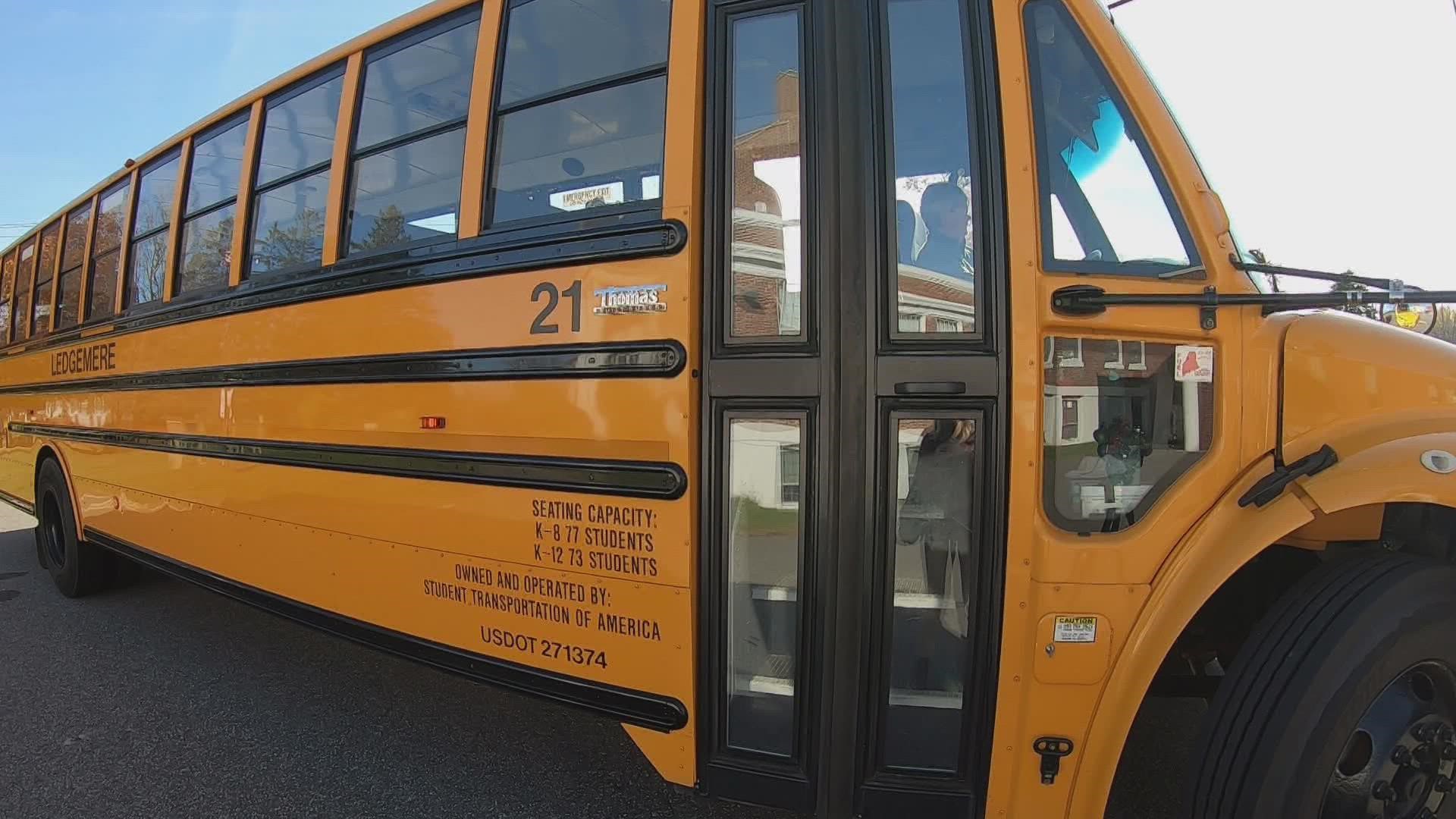WELLS, Maine — Over the next year, Maine will be getting nearly three dozen more electric-vehicle school buses, thanks to the Bipartisan Infrastructure Law.
On Monday, October 31, regional administrator with the U.S. Environmental Protection Agency David Cash met with community members at Wells Junior High School to announce a $13.3 million grant that will help 13 Maine school districts buy 34 zero-emissions school buses.
This funding is part of a five-year, $5-billion-dollar program. The awards granted this year represent $1 billion of that total amount, which Cash said will already have a large impact.
"It’s like 230,000 students nationwide are going to be able to go to school in these clean buses," Cash said.
Cash said Wells was his first stop in New England to announce this funding. The Wells-Ogunquit Community School District will be receiving about $4.3 million of the money coming into Maine this year to buy 11 EV school buses. That will replace almost the entire fleet of 12 diesel buses the district currently has.
"When we think about these big global issues like climate change, it’s really important to think about what the impacts are at the local levels," Cash said.
Jim Daly, the superintendent of Wells-Ogunquit CSD, said this investment will not only help protect the environment and keep kids healthy; it will also help save the school district money with the cost of diesel fluctuating.
"With the unknowns of diesel, we're looking at a five- to six- to seven-percent contract raise over the next couple of years. That’s probably the conservative side of it," Daly said, also adding, "The amount of money that we’re going to save in diesel alone would enable us to hire two or three extra teachers."
Wells High School senior Grady Roy spoke at the announcement on Monday. He told NEWS CENTER Maine knowing his school district applied for this grant money made him hopeful.
"It almost gave us back our confidence in terms of we are able to act now," Roy said. "We’re not just learning about this. We’re not [just] reading about all of these events occurring, but we now are able to act. We’re on the forefront of action, in terms of fighting back against carbon emissions."
Roy said he thinks everyone should be concerned about what we can do in the present to protect our planet in the future. He said knowing this money is coming from a bipartisan law makes him feel more optimistic.
"It kind of shows this is not a left and right issue. This is a human issue. This is something we all need to focus on," Roy said.
A spokesperson with the Maine Department of Education said Maine has the fourth-most EV school bus awards per capita in all 50 states. The U.S. EPA listed the Maine school districts receiving awards as:
- Bar Harbor, Mt. Desert CSD: one school bus ($395,000)
- Bar Harbor, Southwest Harbor Public Schools: one school bus ($395,000)
- Blue Hill, Castine Public Schools: one school bus ($395,000)
- Calais, Pleasant Point: three school buses ($1,095,000)
- Baileyville, Waite Public Schools: one school bus ($395,000)
- Bingham, RSU 83/MSAD 13: one school bus ($395,000)
- Searsport, RSU 20: two school buses ($790,000)
- Baileyville, East Range CSD: one school bus ($395,000)
- Dayton Public Schools: four school buses ($1,580,000)
- Waterboro RSU 57/MSAD 57: two school buses ($790,000)
- Wells-Ogunquit CSD: 11 school buses ($4,345,000)
- Somerville, RSU 12: two school buses ($790,000)
- Winthrop Public Schools: four school buses ($1,580,000)

